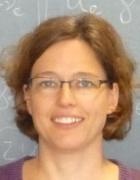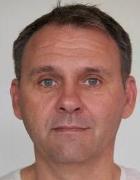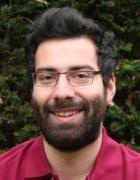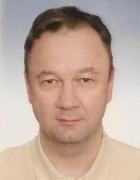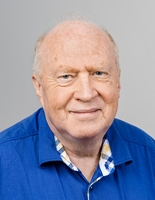Experimentelle Astroteilchenphysik
Prof. Stefan Schönert
Forschungsgebiet
Neutrino Physics
- LENA - Low Energy Neutrino Astronomy
- Borexino
- DoubleChooz
- CNNS - Coherent Neutrino Nucleus Scattering
- GERDA - Search for neutrino-less double beta decay
Dark Matter Search
- CRESST - Cryogenic Rare Event Search with Superconducting Thermometers
- CRESST Scattering Experiment at the Maier-Leibnitz Laboratorium
- EURECA - European Dark Matter Search
- Experiments on liquified rare gases
Adresse/Kontakt
James-Franck-Str. 1/I
85748 Garching b. München
e15office@ph.tum.de
+49 89 289 12522
Fax: +49 89 289 12680
Mitarbeiterinnen und Mitarbeiter der Arbeitsgruppe
Professor
| Photo | Akad. Grad | Vorname | Nachname | Raum | Telefon | |
|---|---|---|---|---|---|---|

|
Prof. Dr. | Stefan | Schönert | 053 | +49 89 289 12511 |
Sekretariat
| Photo | Akad. Grad | Vorname | Nachname | Raum | Telefon | |
|---|---|---|---|---|---|---|
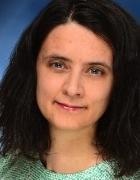
|
Ph.D. | Paola | Mucciarelli | 051 | +49 89 289-12522 | |

|
Sabine | Wenzel | 051 | +49 89 289-12639 |
Wissenschaftlerinnen und Wissenschaftler
| Photo | Akad. Grad | Vorname | Nachname | Raum | Telefon | |
|---|---|---|---|---|---|---|

|
M.Sc. | Ahmed | Abdelhameed | – | – | |

|
Dr. | Matteo | Agostini | – | – | |

|
M.Sc. | Simon | Appel | – | +49 89 289-14416 | |

|
Heerak | Banerjee | – | +4917686682575 | ||

|
Elisabetta | Bossio | – | +49 89 289-12508 | ||

|
Sarthak | Choudhary | – | – | ||
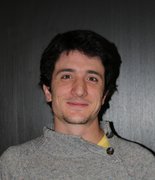
|
Tommaso | Comellato | – | +49 89 289-12475 | ||

|
M.Sc. | Andreas | Erhart | – | – | |

|
Stephan | Fichtinger | – | – | ||

|
Vasile Mihai | Ghete | – | – | ||

|
Dr. | Konstantin | Gusev | – | +49 89 289-14375 | |

|
M.Sc. | Florian | Henkes | – | +49 89 289-53607 | |

|
Margarita | Kaznacheeva | – | +49 89 289-12504 | ||
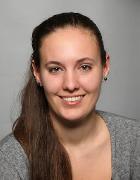
|
M.Sc. | Angelina | Kinast | – | +49 89 289-13005 | |

|
Gabriele-Elisabeth | Körner | – | +49 89 289-12293 | ||

|
Dr. | Gunther | Korschinek | – | +49 89 289-14257 | |

|
M.Sc. | Patrick | Krause | – | +49 89 289-12518 | |

|
M.Sc. | Alexander | Langenkämper | – | +49 89 289-12431 | |

|
M.Sc. | Andreas | Leonhardt | 518 | +49 89 289-12533 | |

|
M.Sc. | Elizabeth | Mondragon Cortes | – | +49 89 289 12635 | |
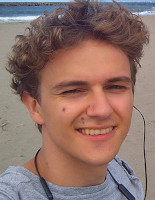
|
M.Sc. | Moritz | Neuberger | – | +49 89 289-12475 | |

|
M.Sc. | Tobias | Ortmann | – | +49 89 289-12431 | |

|
Dr. | Luca Maria | Pattavina | – | +49 89 289-13005 | |

|
Luigi | Pertoldi | 063 | +49 89 289-12516 | ||

|
M.Sc. | Lilly | Peters | – | +49 89 289-12504 | |
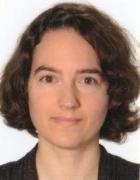
|
Dr. | Tina | Pollmann | 041 | +49 89 289 12635 | |

|
Dr. | Walter | Potzel | – | +49 89 289-12508 | |

|
Dr. | Johannes | Rothe | – | +49 89 289-13005 | |

|
M.Sc. | Nicole | Schermer | 065 | +49 89 289-12431 | |

|
Andreas | Schosser | – | – | ||

|
M.Sc. | Mario | Schwarz | – | +49 89 289-12475 | |

|
M.Sc. | Konstantin | Schweizer | – | +49 89 289-14416 | |
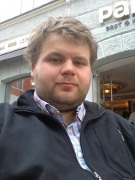
|
Dr. | Hans | Steiger | 043 | +49 89 289-12328 | |

|
Dr. | Raimund | Strauß | – | – | |

|
Prof. Dr. | Marco | Vignati | – | – | |

|
M.Sc. | Christoph | Vogl | – | – | |

|
Dr. | Victoria | Wagner | – | +49 89 289-14375 | |

|
M.Sc. | Alexander | Wex | – | +49 89 289-12504 | |
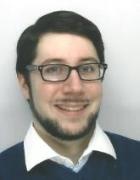
|
Dr. | Christoph | Wiesinger | – | +49 89 289-53605 | |

|
Dr. | Michael | Willers | – | +49 89 289-53603 | |

|
Daniya | Zinatulina | – | – |
Studierende
| Photo | Akad. Grad | Vorname | Nachname | Raum | Telefon | |
|---|---|---|---|---|---|---|

|
B.Sc. | Rosanna | Deckert | – | – | |
Andere Mitarbeiterinnen und Mitarbeiter
Lehrangebot der Arbeitsgruppe
Lehrveranstaltungen mit Beteiligung der Arbeitsgruppe
Abgeschlossene und laufende Abschlussarbeiten an der Arbeitsgruppe
- Results of a Cryogenic Sputtered Tungsten TES Detector Produced at TUM for the NUCLEUS Experiment
- Abschlussarbeit im Bachelorstudiengang Physik
- Themensteller(in): Raimund Strauß
- Modelling the scintillation mechanism of xenon-doped liquid argon in the presence of impurities
- Abschlussarbeit im Bachelorstudiengang Physik
- Themensteller(in): Stefan Schönert
- Raman Measurements on Meteorites and Analysis of Bennu Subsample OREX-803141-0
- Abschlussarbeit im Masterstudiengang Physik (Kern-, Teilchen- und Astrophysik)
- Themensteller(in): Stefan Schönert
